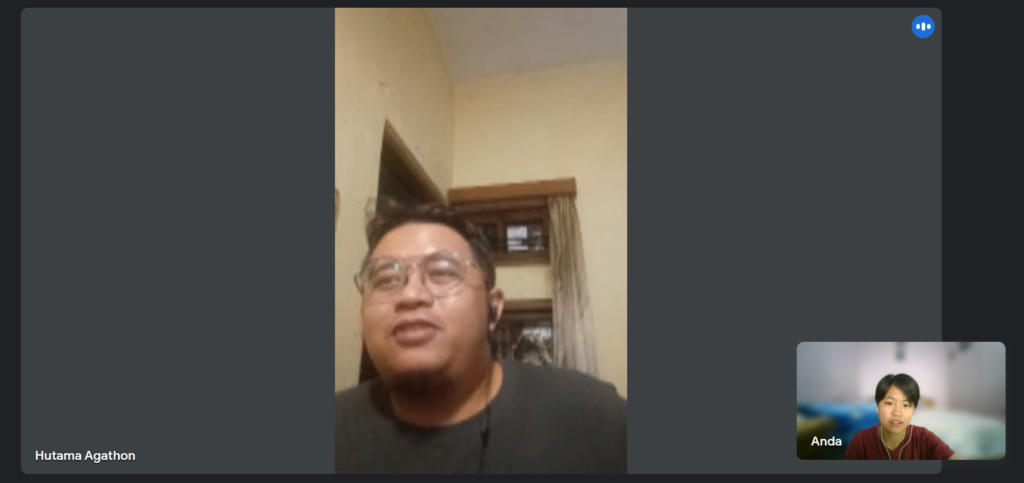
(Yogyakarta, 11/07/20) – Performing a self-produced play, Moon at Noon 2022 was seen to receive many affirmative feedbacks from the audience. The musical performance was as thoroughly enjoyable as the dynamics of the characters. In this article, we are going to take a closer look at this year’s play performance review, mainly from our interview with the current advisor of Teater Seriboe Djendela, Mr. Agathon Hutama.
Mr. Agathon, also commonly known as “Pakde”, started his theatrical journey in 2006. He began to actively join the student activity’s unit of Teater Seriboe Djendela in 2009 and became deeply interested in the field of literacy and stage production management. Being an alumnus of the English Letters Department himself, Pakde Agathon has also taken the course of Play Performance in his university years.
To begin with, Pakde expressed his appreciation to the committee of Play Performance 2022 as well as the English Letters Department of Sanata Dharma University. Regardless of the outcome, the willingness and effort to continuously create the literature work is worth the acknowledgement. He mentioned that the challenge of originality has been accepted bravely by the committee, knowing that they have to make the quality of the script more or less equivalent to the classical play performed in the previous years, namely Seasons of Love, Mamma Mia, and the Sound of Music. Not to mention, the process of recontextualizing songs and composing choreographies to the play is an extra effort worth noticing.
“The main appeal of Moon at Noon is in its musical performance,” said Pakde. He further explained that although the singing part was impressive, it ironically distracted the committee from building further depth into the play itself. Pakde, on the other side, also agreed that it was a good strategy for the play, as the English Letters Department has not yet provided a long term learning medium with acting at its center while the majority of actors and actresses also did not have prior experiences in the field of theater. In other words, the lack of the depth in the script actualization might have been caused, saved, and over-charmed by the musical show.
This case is commonly found in musical plays due to the duality of elements which needs to be performed in one show. To improve this, Pakde suggested that the songs are exploited more as a form of interaction between characters instead of a solo performance “isolated” from the script. This means that the characters should do more realistic gestures related to the story while singing instead of gestures which evidently show that they are singing at that moment.
Moreover, Pakde described how the depth of the play was problematic. Firstly, the number of focus in the story is too many. Thus, it creates confusion about which main message was supposed to be received by the audience. It is comparatively better to just take one main topic and break it down into several perspectives in the play. Secondly, the timescope of COVID-19 was shown by so few setting indicators aside from the dialogues. Details such as backsound of ambulances going around or people wearing masks were still missing from the play.
For the next Play Performance, Pakde Agathon suggested that the topic of the play focus more on the issues that the society around us are struggling through. By this, students of the English Letters Department are expected to be more susceptible, compassionate, and critical toward the social occurrences around them.
“What if next year’s Play Performance is not made into a musical?” added Pakde at the end of the interview, proposing a new challenge for the English Letters students should they also want to perform an original play next year. He explained that this proposal can be a way for the committee to take more of their time on constructing depth into the script and for students to get bigger opportunities on becoming great actors and actresses without being held behind by their ability to sing. From this, Pakde reminds us that musical play is not the peak of play performance, yet one genre among many others to be explored.
Journalist: Agnes Seraphine
Editor: Cynthia Olga Handoko (QC)
